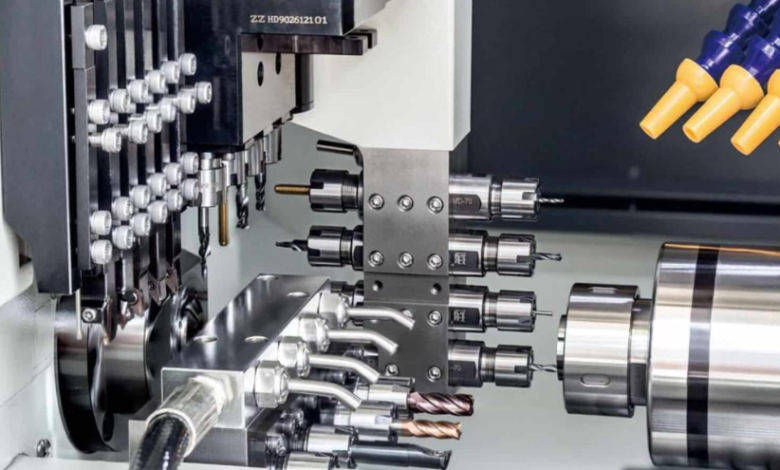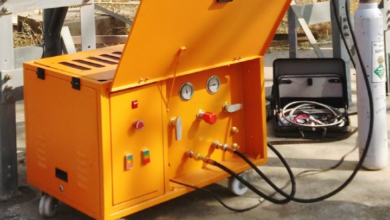Importance of CNC Swiss Machineing in Modern Manufacturing

Introduction to CNC Swiss Machineing
CNC swiss machineing is a specialized method for producing highly precise and intricate parts. This process is widely used in industries that demand tight tolerances, such as medical, aerospace, electronics, and automotive sectors. By supporting the workpiece near the cutting tool, CNC swiss machines minimize deflection and vibration, resulting in superior accuracy.
Core Features of CNC Swiss Machines
Sliding Headstock Mechanism
The sliding headstock allows the material to move along with the cutting tool. This feature ensures precise cuts, even on long and thin parts, and reduces material waste caused by deflection or bending.
Multi-Axis Operations
Many CNC swiss machines are equipped with multiple axes, enabling simultaneous turning, drilling, and milling operations. This reduces the need for multiple setups and enhances production efficiency.
Automated Tool Changes
With automated tool changers, cnc swiss machineing can operate continuously without manual intervention. This feature increases productivity and ensures consistent quality across all components.
Benefits of CNC Swiss Machineing
High Precision and Accuracy
By holding the workpiece close to the cutting tool, CNC swiss machineing achieves extremely tight tolerances, making it ideal for complex components used in critical applications.
Efficient Production
Multi-axis operations and minimal handling save time and increase throughput. Both small and large production runs benefit from this process.
Material Flexibility
CNC swiss machineing supports various materials, including stainless steel, aluminum, titanium, brass, and some engineering plastics. This versatility makes it suitable for multiple industry applications.
Cost-Effective Manufacturing
Although the initial investment in CNC swiss machines can be high, the reduced waste, fewer errors, and faster production cycles make it cost-effective in the long term.
See also: The ROI Of Hiring A Search Engine Optimization Company
Choosing a Reliable CNC Swiss Machineing Provider
Experience and Technical Expertise
Providers with experienced technicians can handle complex designs, challenging materials, and critical tolerances effectively.
Advanced Equipment
Providers using the latest multi-axis machines and digital controls are more capable of producing high-quality components consistently.
Quality Assurance
Stringent quality control measures are essential to ensure that every part meets industry standards and client specifications.
Flexibility and Support
A dependable provider can accommodate urgent orders, design modifications, and large-scale production while maintaining high-quality output.
Applications of CNC Swiss Machineing
Medical Devices
Surgical instruments, implants, and other medical components require the precision and reliability that CNC swiss machineing offers.
Aerospace Components
Turbine blades, fasteners, and structural elements benefit from the accuracy and strength provided by CNC swiss machineing.
Automotive Industry
Engine components, fuel system parts, and other intricate automotive parts are efficiently produced with this method.
Electronics Industry
Small and complex electronic parts, including connectors, terminals, and housings, rely on CNC swiss machineing for accurate production.
Recent Trends in CNC Swiss Machineing
Automation Integration
Robotic systems combined with CNC swiss machineing increase productivity, minimize human error, and maintain consistent quality.
Hybrid Manufacturing
Combining CNC swiss machineing with additive techniques allows for innovative designs, reduced material waste, and shorter production times.
Sustainable Manufacturing
Energy-efficient machines and environmentally friendly materials are becoming more common in CNC swiss machineing aligning with green manufacturing goals.
Digital Simulation
Process simulation and digital twin technology help manufacturers optimize operations before production, reducing errors and enhancing efficiency.
Conclusion
CNC swiss machineing is essential for producing complex, high-precision components across multiple industries. Its advantages include superior accuracy, production efficiency, material flexibility, and long-term cost-effectiveness. Selecting an experienced provider with modern equipment and strict quality control ensures reliable results. As technology evolves, CNC swiss machineing continues to play a crucial role in innovative manufacturing processes, supporting sectors such as medical, aerospace, automotive, and electronics.







